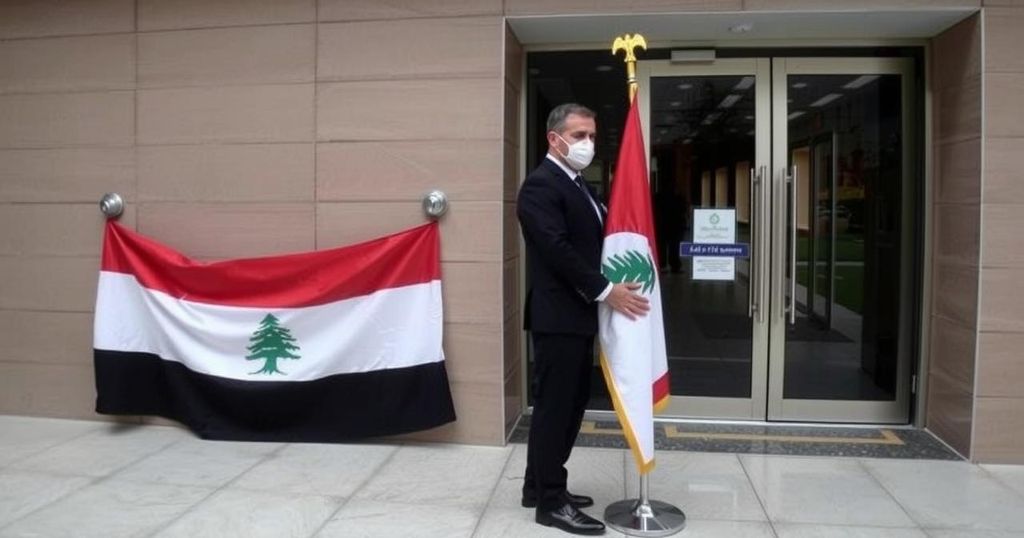Syria’s Embassy in Lebanon Suspends Services Amid Political Turbulence

Syria’s embassy in Lebanon has suspended services after relatives of Bashar Assad were arrested for passport forgery. Concurrently, Lebanese authorities handed over former Syrian army officers to the HTS-led Syrian government amid ongoing regional tensions. Calls for women’s rights in the new order have emerged from Kurdish groups, highlighting continued societal concerns in Syria’s shifting political landscape.
Syria’s embassy in Lebanon has temporarily halted consular services following the arrest of relatives of the deposed Syrian President Bashar Assad at Beirut’s airport on suspicion of passport forgery. Concurrently, Lebanese authorities transferred dozens of Syrians, including former Syrian army officers, to the new Syrian government led by the former insurgent group Hayat Tahrir al-Sham (HTS). This move illustrates the shifting political dynamics in the region, as the HTS consolidates power amidst continuing regional and internal conflicts.
The embassy’s suspension of services, announced via its Facebook page, cites no specific reason, but it is believed to be related to the forged passports, which were linked to Assad’s family. Reports indicate that 70 Syrians were handed over to the new Syrian authorities, indicating a methodical approach toward re-establishing control. Despite a look towards normalization by regional partners, sporadic conflicts persist between HTS-led forces and pro-Assad groups, indicating underlying tensions.
Syria’s new leadership under Ahmad al-Sharaa has purportedly calmed initial fears of retribution against communities that supported Assad, yet their governance remains contentious. Recent clashes highlight ongoing strife, particularly in areas with significant Alawite populations, historically loyal to Assad. Moreover, tensions are palpable between Kurdish-led forces and Turkish-backed groups, as Turkey seeks to influence the political landscape against its adversaries.
Amid these complexities, U.S. Secretary of State Antony Blinken has engaged in discussions with Turkish officials to promote a political resolution that respects human rights and includes diverse representation in governance. Notably, Kurdish women’s groups have taken to the streets to demand their rights in this newly established order, expressing concerns that the new authorities may impose extremist policies.
Despite ongoing uncertainty regarding the treatment and representation of women under HTS control, their calls for recognition in Syrian governance remain poignant and important for fostering an inclusive future for all citizens in Syria.
The geopolitical situation in Syria continues to evolve dramatically post-civil war, particularly in the context of the recent establishment of the Hayat Tahrir al-Sham (HTS) as a leading governing body within the country. The HTS emerged from the 2011 conflict as one of the most significant opposition groups but has now transitioned into a governing authority in northwest Syria. As various factions jockey for influence and legitimacy, the role of external powers, including Turkey and the United States, complicates the landscape further, especially with regard to minority rights and governance inclusivity, particularly for women and marginalized communities in this patriarchal society.
In summary, the suspension of diplomatic services at Syria’s embassy in Lebanon reflects the tensions following the arrests of Assad’s relatives and the handover of Syrian migrants to the new government. The political landscape is fraught with unrest, evidenced by continued clashes between opposing factions. Although HTS claims to have eased fears regarding retribution, regional stakeholders express concern over the rights of diverse communities, particularly women, in this evolving governance structure.
Original Source: apnews.com






